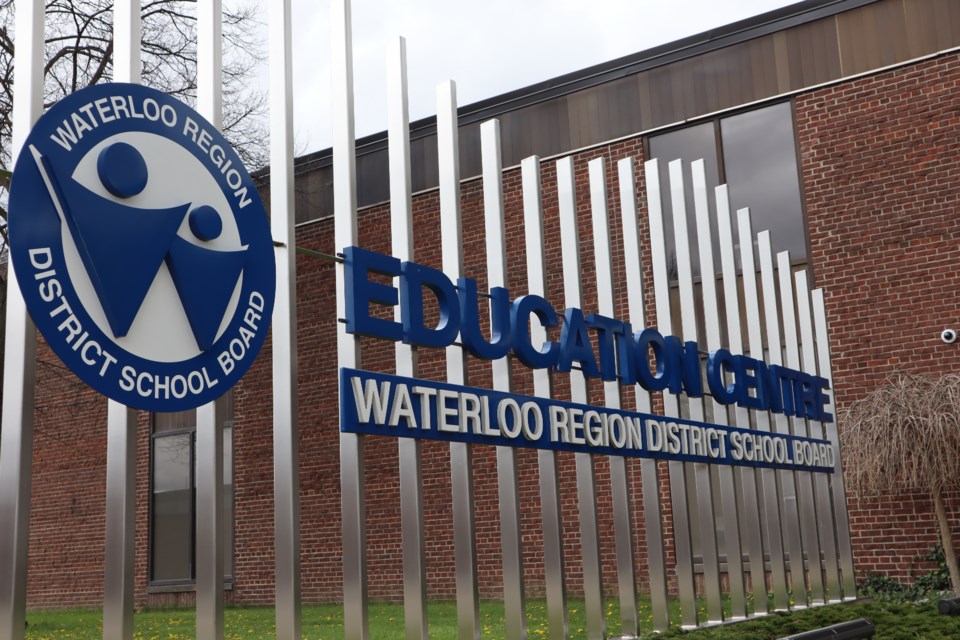Aiming to address potential learning loss experienced by students due to the COVID-19 pandemic, the Waterloo Region District School Board has put in place a junior kindergarten to Grade 12 strategy to ensure adequate supports with before and after-school tutoring, summer programming, day camps and more.
Noting "some gaps" in learning around literacy skill development and math skill development with the return of in-person learning, associate director Lila Read said educators with the board are prepared to provide what's necessary to put students on course for success.
With funding made available through the province's Learning Recovery Action Plan, Read said existing supports in the board have been strengthened and expanded, with many already showing "concrete evidence" of successful outcomes in student learning.
For elementary students, Read said WRDSB will be putting a "variety of reading and math supports" in place in the classroom, while providing educators with additional professional learning to help address any learning gaps.
"We also have again this summer the Summer Learning Program which focuses on kindergarten to Grade 2 students, as well as students in Grades 3 to 6," Read said.
"Again, the focus of the learning there is around literacy and numeracy, and also supporting students with social and emotional learning to assist them with developing stronger well-being and mental health."
Read notes that the Summer Learning Program for elementary learners has been running for years, though thanks to that additional provincial funding, the board was able to expand the program's focus from the kindergarten to Grade 2 range to where it currently stands, adding she's looking forward to seeing the outcomes it will be able to offer.
"We do know and do have evidence from our Summer Learning Program that the outcomes are very, very positive in terms of... even if it's literacy and numeracy skill retention (...) but in many cases students are also gaining levels as a result of that program."
A similar program available for those in Grades 7 and 8 as well as secondary students has also been expanded, with additional funding allowing further supports for students with special education needs as well as "multi-lingual learners" whom may be from families that are newcomers to Canada.
Students in secondary school with the board also have access to what Read calls "credit rescue" options, where those facing some difficulty are able to zero in on specific problem areas with added supports rather than repeating an entire credit to "cross the finish line."
"One of the things that we know about this pandemic is that (...) there have been disproportionate outcomes for those who are marginalized, and the pandemic has simply marginalized further.
We are very, very mindful of the students who may have already had gaps prior to the pandemic and in some cases, those gaps have widened." Read said. "We are really putting an earnest effort and focus in supporting those learners to ensure they're set up for success going forward."
While the pandemic has posed its own challenges, Read said that there's also been a silver-lining in the "whole new skill set" and perspective that adjusting to COVID-19 has provided for both educators and students.
Read maintained that WRDSB staff have tackled an "unprecedented" skill development learning curve with regards to the utilization of technology, offering her thanks to school administrators, central staff and educators.
"We also had a substantive focus on the educators bringing a trauma-informed lens to their work. An anti-racist, trauma-informed lens to the context of everything that's happening globally, in our world and in our community right now." Read said.
"We've certainly seen gains there and that really comes out in the kinds of activities that teachers are planning, resources they're using, the kind of assignments they're providing to students and even the way our teachers are assessing those assignments."
While the emphasis continues to be on identifying and addressing learning loss and the learning deficit, Read said that the board has "deeply committed educators" who are prepared to work with students and families to ensure student success.
"There is no magic deadline in terms of when certain skills need to be developed... and if there are some gaps, the key is to identify them and address them early, and to set that child or student up for success going forward." Read said. "We are absolutely prepared and equipped to do that."
